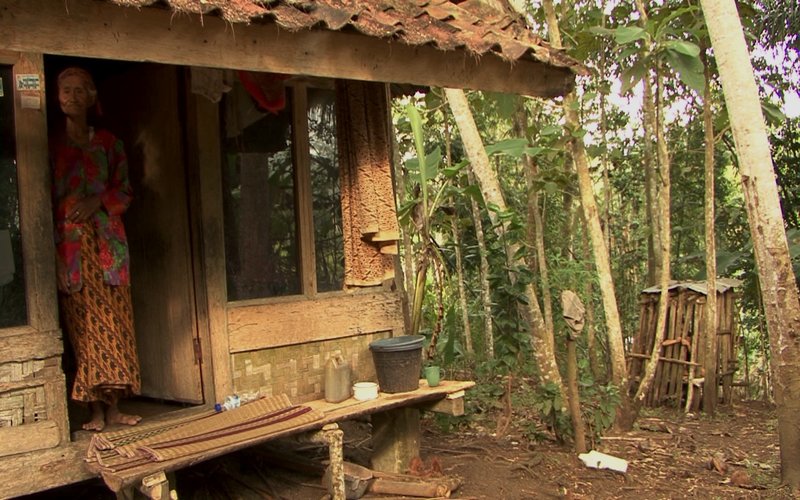
Film screening highlights health workers attempts to tackle abuses against the mentally ill.
Health workers traversed geographical and cultural barriers to remind family members of pasung victims that love and respect help in the recovery process. Their passion and commitment to the work is inspiring.
Sabrina Anjara
A film on human rights violations against the mentally ill in Indonesia was screened in the UK for the first time last week, followed by a discussion with the film's director, NHS psychiatrists, human rights and public health researchers and Southeast Asia enthusiasts.
The screening on Thursday of ‘Breaking the Chains’ was co-hosted by the Gates Cambridge Scholars Council and the Cambridge University Southeast Asian Forum.
The film by Erminia Colucci is an ethnographic photo/film-documentary project about human rights violations against people with mental illness and depicts the use of physical restraint and confinement of people with mental illness in Indonesia, a practice known as pasung. The practice is widespread in poorer areas with families chaining or caging their relatives because they believe it will protect them.
Indonesia is unique for having planned to scale up the Bebas Pasung (Free from Pasung) programme at a national level. This programme locates and releases victims of pasung and arranges medical treatment. While Indonesia's Ministry of Health had committed to ending pasung throughout the country by 2015, the effort has been extended to 2017. The film follows local health workers in West Java who provide psychoeducation for local people and free those who have been chained.
Pasung has until now remained largely undocumented by the international media. 'Breaking the Chains' is a first of its kind documentary which situates pasung in the socio-cultural-political situation of Indonesia and gives voice to people with a mental illness in Indonesia and throughout the world who are living under similar restraints. More than 4,500 people have been freed from pasung in Indonesia through training and advocacy by local health workers. Part of the problem is the lack of mental health workers in the country. There are around 600 psychiatrists for a population of 250 million, with the cities having more access to support than rural areas.
NHS Psychiatrists and public health researchers who attended the screening were interested in finding out if the general public in Indonesia were aware of the problem of pasung. The audience were also interested in knowing whether people with lived experiences of mental illness were involved in psychoeducation and advocacy.
Sabrina Anjara, a Gates Cambridge Scholar and Vice President of the Cambridge University Southeast Asian Forum who organised the screening, noted that local health workers were filmed spending more than 20 hours just to reach one pasung victim, trekking through jungles and crossing ravines on foot. “Health workers traversed geographical and cultural barriers to remind family members of pasung victims that love and respect help in the recovery process. Their passion and commitment to the work is inspiring,” she says. Sabrina [2014] is doing her PhD on the mental health system in Indonesia.
Dr Colucci is a Lecturer at Centre for Psychiatry, Barts and the London School of Medicine and Dentistry, Queen Mary University of London. She is also affiliated to the Global and Cultural Mental Health Unit, School of Population and Global Health, the University of Melbourne (Australia). "I think it is a hopeful film. It's about thinking that things can change and they are changing," she says.
*Watch the debate following the screening here. Picture credit: still from Breaking the Chains showing an Indonesian woman and the cage created for a mentally ill relative.












